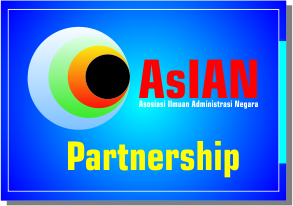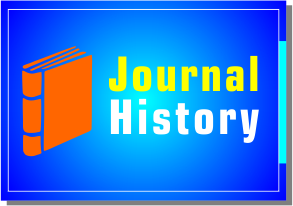Analisis Efektivitas Penerimaan Pajak Air Tanah Dalam Upaya Meningkatkan Pendapatan Asli Daerah Kabupaten Sumba Timur
DOI:
https://doi.org/10.31334/transparansi.v5i2.2754Keywords:
Effectiveness, Groundwater Tax, Local Revenue,Abstract
Groundwater Tax is a tax on the extraction and utilization of groundwater. The phenomenon in this study is the realization revenue of Groundwater Tax that did not reach the specified target. This lack of success on the Groundwater Tax revenue target is due to the lack of awareness of taxpayers in fulfilling their tax obligations. The purpose of this study was to analyze the effectiveness of groundwater tax revenue in an effort to increase local revenue along with the obstacles and efforts made by the Regional Revenue Agency in an effort to receive groundwater tax. This study used a descriptive qualitative research method. The location in this research was the Regional Revenue Agency of East Sumba Regency. In this study, the author used the theory of effectiveness according to Duncan that used three dimensions to measure effectiveness, i.e., goal achievement, integration, and adaptation. The results of this study showed that in 2018 and 2020 it was less effective because the effectiveness ratio was still below 80%, while in 2019 it was running very effectively as evidenced by the effectiveness ratio level being above 100%. This happens because of the lack of awareness of the taxpayer in paying the Groundwater Tax. The efforts made by the Regional Revenue Agency are to increase optimal supervision by monitoring and conducting socialization related to Groundwater Tax to Taxpayers.References
BUKU
Aan Komariah & Djam'an Satori. 2011. Metodologi Penelitian Kualitatif. Bandung: Alfabeta. Achmadi, A. dan Narbuko. 2015. Metodologi Penelitian. Jakarta: Bumi Aksara.
Arikunto, S. 2019. Prosedur Penelitian. Jakarta: Rineka cipta.
Bogdan dan Taylor. 1975. Metodologi Penelitian Kualitatif. Bandung: Remadja.
Creswell, John W. 2010. Research Design: Pendekatan Kualitatif, Kuantitatif, dan Mixed (3nd ed.).Yogyakarta: Pustaka Belajar.
Darmadi, Hamid. 2013. Metode Penelitian Pendidikan dan Sosial. Bandung: Alfabeta. Harbani, Pasolong. 2014. Teori Administrasi Publik. Bandung: CV. Alfabeta.
Harjo, Dwikora. 2019. Perpajakan Indonesia. Jakarta: Mitra Wacana Media. Hamidi. 2004. Metode Penelitian Kualitatif. Malang: UMM Press.
Hessel, Nogi. 2015. Manajemen Publik.Jakarta: PT Gramedia Widiasarana. Ibrahim, Adam. 2009. Perilaku Organisasi. Bandung: Sinar Baru.
J, Ravianto. 2014. Produktivitas dan Pengukuran. Jakarta: Binaan Aksara.
Kaelan, 2012. Metode Penelitian Kualitatif Interdisipliner. Cetakan Pertama. Yogyakarta: Paradigma. Keban, Yeremias T. 2014. Enam Dimensi Strategi Strategi Administrasi Publik. Yogyakarta: Gava
Media.
Lubis, S.M. Hari dan Huseini, Martani. 2007. Teori Organisasi: Suatu Pendekatan Makro. Jakarta: Pusat Antar Universitas Ilmu-Ilmu Sosisal.
Mufiz, Ali. 2004. Pengantar Ilmu Administrasi Negara. Jakarta: Universitas Terbuka. Mulyadi, Deddy. 2016. Administrasi Publik dan Pelayanan Publik. Bandung: Alfabeta.
Pakei, Beni. 2016. Konsep dan Analisis (Efektivitas Pengelolaan Keuangan Daerah di Era Otonomi Daerah). Jayapura: Taushia.
Purwanto, Agus. 2004. Pajak Daerah dan Retribusi di Indonesia. Jakarta: Bumi Aksara.
Rahayu, Siti Kurnia. 2010. Perpajakan Indonesia: Konsep dan Aspek Formal. Yogyakarta: Graha Ilmu
Riduwan. 2010. Skala Pengukuran Variabel-variabel Penelitian. Bandung: Alfabeta. Riyanto, 2010. Metodologi Penelitian Pendidikan. Surabaya: Penerbit.
Siahaan, Marihot P. 2016. Pajak Daerah dan Retribusi Daerah. Jakarta: Rajawali Pers. Silalahi, Ulbert. 2010. Studi Tentang Ilmu Administrasi. Bandung: Sinar Baru Algesindo. Sudijono, Anas. 2012. Pengantar Evaluasi Pendidikan. Jakarta: PT Raja Grafindo Persada. Syafri, Wirman. 2012. Studi tentang Administrasi Publik. Jakarta: Erlangga.
Tanzeh, Ahmad. 2011. Metodologi Penelitian Praktis. Yogyakarta: Teras.
Widoyoko, Eko Putro. 2014. Teknik Penyusunan Instrumen Penelitian. Yogyakarta: Pustaka Pelajar.
Jurnal
Farida Khairani Lubis dan Diana Oktavia Lusiana. 2019. Analisis Potensi Pajak Air Tanah dan Kontribusinya Terhadap Penerimaan Pajak Daerah Kota Meda (Studi Pada Badan Pengelolaan Pajak dan Retribusi Daerah). Sumatera Utara: Universitas Islam.
Meisa Farina Taufik, Ventje Ilat dan Anneke Wangkar. 2020. Analisis Efektivitas Pemungutan Pajak Air Tanah Sebagai Upaya Meningkatkan Penerimaan Pajak Daerah Kota Ternate. Maluku Utara: Unsrat.
Heine Glorina Penekenan, Linda Lambey dan Sintje Rondonuwu. 2018. Intensifikasi Pemungutan Pajak Air Tanah Sebagai Upaya Meningkatkan Pendapatan Asli Daerah Kota Tomohon. Sulawesi Utara: Unsrat.
Silfia Rini. 2018. Pelaksanaan Pemungutan Pajak Air Tanah Kecamatan Tampan Kota Pekanbaru.
Sumatera Barat: Dikti.
Steffie M. Johanes, Herman Karamoy dan Meily Y. B. Kalalo. 2021. Analisis Perhitungan, Penyetoran Pajak Air Tanah Pada Kantor Badan Pengelola Pajak dan Retribusi Daerah Kabupaten Minahasa. Sulawesi Utara: Unsrat
Sri Putri Sumangkut, Avie Kawulur dan Florence Moroki. 2020. Analisis Potensi dan Efektivitas Pajak Air Tanah dan Kontribusinya Terhadap Penerimaan Pajak Daerah Kota Bitung. Sulawesi Utara: Unima.
Gabriela G. Rorimpandey, Lintje Kalangi dan Robert Lambey. 2018. Implementasi Proses Pemungutan dan Kontribusi Penerimaan Pajak Air Tanah di Kabupaten Minahasa Selatan. Sulawesi Utara: Unsrat.
Naek H. Sitomorang dan Nora Eka Putri. 2020. Groundwater Tax Contribution to Padang City Original Revenue. Sumatera Barat: UNPAD
Aris Tri Cahyono, Mat Juri dan Mochammad Ridwan. 2020. Analysis Of Factors Affecting Income Receiving City Regional Tax. Kalimantan Timur: Polnes.
Muslim Al Kautsar, Acep Abdul Basit, Abdullah Ramdhani, dan Hanifah Fauiziah. 2021.
Rejuvenating The Groundwater Tax Strategy In Garut Regency. Jakarta: JAF
Peraturan
Undang-Undang Nomor 28 Tahun 2009 tentang Pajak Daerah dan Retribusi Daerah.
Peraturan Daerah Pemerintah Kabupaten Sumba Timur Nomor 4 Tahun 2013 tentang Pajak Air Tanah.
Downloads
Published
Issue
Section
License

This work is licensed under a Creative Commons Attribution-ShareAlike 4.0 International License
Please find the rights and licenses in Transparansi : Jurnal Ilmiah Ilmu Administrasi By submitting the article/manuscript of the article, the author(s) agree with this policy. No specific document sign-off is required.
- License
The commercial use of the article will be governed by the Creative Commons Attribution license as currently displayed on Creative Commons Attribution-ShareAlike 4.0 International License.
2. Author(s)' Warranties
The author warrants that the article is original, written by stated author(s), has not been published before, contains no unlawful statements, does not infringe the rights of others, is subject to copyright that is vested exclusively in the author and free of any third party rights, and that any necessary written permissions to quote from other sources have been obtained by the author(s).
3. User Rights
Transparansi : Jurnal Ilmiah Ilmu Administrasi spirit is to disseminate articles published are as free as possible. Under the Creative Commons license, Transparansi : Jurnal Ilmiah Ilmu Administrasi permits users to copy, distribute, display, and perform the work for non-commercial purposes only. Users will also need to attribute authors and Transparansi : Jurnal Ilmiah Ilmu Administrasi on distributing works in the journal and other media of publications.
4. Co-Authorship
If the article was jointly prepared by more than one author, any authors submitting the manuscript warrants that he/she has been authorized by all co-authors to be agreed on this copyright and license notice (agreement) on their behalf, and agrees to inform his/her co-authors of the terms of this policy. Transparansi : Jurnal Ilmiah Ilmu Administrasi will not be held liable for anything that may arise due to the author(s) internal dispute. Transparansi : Jurnal Ilmiah Ilmu Administrasi will only communicate with the corresponding author.
5. Miscellaneous
Transparansi : Jurnal Ilmiah Ilmu Administrasi will publish the article (or have it published) in the journal if the article’s editorial process is successfully completed. Transparansi : Jurnal Ilmiah Ilmu Administrasi editors may modify the article to a style of punctuation, spelling, capitalization, referencing and usage that deems appropriate. The author acknowledges that the article may be published so that it will be publicly accessible and such access will be free of charge for the readers as mentioned in point 3.
Every accepted manuscript should be accompanied by "Copyright Transfer Agreement"prior to the article publication.











